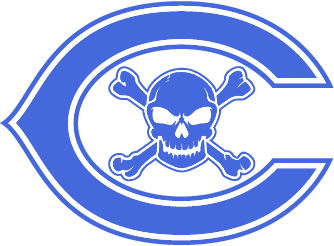Elementary Curriculum
School curriculum refers to the set of learning experiences and educational content designed to help students achieve academic goals. It is made up of standards-based learning objectives, instructional materials, teaching strategies, and assessment methods. The curriculum outlines what students need to know and be able to do at each grade level, guiding teachers in delivering effective instruction and fostering student growth.
Instructional Resources by Core Elementary Subject
Reading and Writing
Reading and Writing resources in the elementary level come from a variety of approaches and resources in order to maintain a well-rounded evidence based approach. Our resources and literacy instructional practices are aligned to the Essential Instructional Practices in Literacy. Our resources include:
Orton Gillingham instructional resources and strategies for phonological awareness, phonics, and moropholgy
Shared reading (FPC)
Mini Lessons (FPC)
Small Group instruction using Guided Reading (Literacy Footprints) and strategy groups based on student need
Classroom libraries including decodables (Flyleaf), as well as both leveled and non-leveled texts by genre/interest
Amplify CKLA is a primary curriculum resource in grades 4 and 5.
Mathematics
Math Expressions is the primary curriculum resources in grades K-5. Math Expressions is a comprehensive, standards-based K-5 mathematics resource that offers a balanced approach to teaching and learning mathematics. Math Expressions uses manipulatives, visual models, conceptual language, and real-world situations to help students build deep mathematical understanding.
What does Math Expressions look like in the classroom?
Structures of the Program:
Quick Practice - Involves whole-class responses or individual partner practice and is frequently led by student leaders.
Student Leaders - Teachers facilitate students' growth by helping all students take on leadership roles with structured practice activities.
Building Concepts - Objects, drawings, conceptual language, and real-world situations strengthen mathematical ideas and understanding.
Math Talk - Students explain thinking using drawings that support understandings and promote meanings.
Helping Community - A classroom in which everyone is both a teacher and a learner to enhance mathematical understanding, competence, and confidence.
Science
Amplify Science is the primary curriculum resource for grades K-5. Amplify Science is an engaging, phenomena-based curriculum designed to captivate students in hands-on learning while developing critical thinking and problem-solving skills. Tailored for elementary education, it integrates science practices with literacy and mathematics, encouraging students to think and act like real scientists and engineers. Each unit in the curriculum presents students with a compelling real-world problem to investigate, helping them build a deep understanding of key scientific concepts.
List of Units by Grade Level:
Kindergarten
Needs of Plants and Animals
Pushes and Pulls
Sunlight and Weather
1st Grade
Animal and Plant Defenses
Light and Sound
Spinning Earth
2nd Grade
Plant and Animal Relationships
Properties of Materials
Changing Landforms
3rd Grade
Balancing Forces
Environments and Survival
Weather Patterns
4th Grade
Vision and Light
Earth's Features
Energy Conversions
5th Grade
Modeling Matter
The Earth System
Patterns of Earth and Sky
Social Studies
The Michigan Citizenship Collaborative Curriculum (MC3) is a comprehensive K-12 social studies program developed collaboratively by Michigan educators to align with the state's content expectations. It offers structured units and lessons that integrate history, geography, civics, and economics, aiming to prepare students for informed and active citizenship. The curriculum emphasizes critical thinking, inquiry-based learning, and the development of civic competencies.
MC3 Units by Grade Level:
Note: The following is a general outline; specific units may vary by district.
Kindergarten:
Understanding Myself and Others
My School and School Community
Exploring My Neighborhood
Learning About Jobs People Do
1st Grade:
Families and Schools
How Do We Learn About Places?
How Do People Live Around the World?
How Do We Get What We Need and Want?
2nd Grade:
The Local Community
Using Maps to Learn About Communities
The History of the Local Community
Understanding Local Government
3rd Grade:
The Geography of Michigan
The Early History of Michigan
The Growth of Michigan
The Economy of Michigan
Public Issues Facing Michigan Citizens
4th Grade:
Foundations in Social Studies
The United States in Spatial Terms
Human Geography in the United States
Exploring Economics
Our Federal Government
Rights and Responsibilities of Citizenship
5th Grade:
Our Government
Three Worlds Meet
Colonization and Settlement
Life in Colonial America
Road to Independence
The American Revolution
Founding the New Nation
